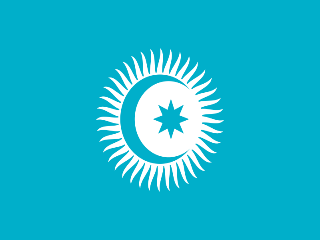“CACI Analyst, February 19, 2014”
The Turkic Council: Will the Turks Finally Unite?
By Alim Bayaliyev (the 19/02/2014 of the CACI Analyst)
In early June this year, Turkey will host the fourth Summit of the Turkic Council, an intergovernmental organization that brings together Azerbaijan, Kazakhstan, Kyrgyzstan, and Turkey. Presidents Ilham Aliyev, Nursultan Nazarbayev, Almazbek Atambayev, and Abdullah Gül will discuss a wide range of issues related to multilateral cooperation among their countries as well as other matters pertaining to the broader regional context. While the Council has since its establishment in 2009 made meaningful progress on institutionalizing the interaction among the engaged Turkic states, it will take more time and a concerted effort to build a strong, vibrant, and sustainable political alliance.

“CACI Analyst, February 05, 2014”
Central Asian Qualms About Eurasian Union Mounting
By Stephen Blank (the 05/02/2014 issue of the CACI Analyst)
The current Ukrainian crisis has focused attention on Russia’s drive to construct a Eurasian Economic Union (EEU) and a customs Union as part of it. But Ukraine is by no means the whole story, as reservations if not resistance to the project mount in Central Asia. Both Kazakhstan and Kyrgyzstan have taken steps to resist Russian encroachments and to raise the price of their admission into this union. In January 2014, Kazakhstan's government launched a plan to re-privatize the crucial Kazakh banking sector, partly in order to shield it from the tactics used by Russian banks to buy up equity in distressed banks under EEU guidelines. Kyrgyzstan also displays an increased desire to force Russia to bargain for Kyrgyzstan’s adhesion to the Customs Union and EEU.
Protests in Kyrgyzstan Against Customs Union Entry
By Arslan Sabyrbekov (the 05/02/2014 issue of the CACI Analyst)
Kyrgyzstan’s entry into the Customs Union with Russia, Kazakhstan and Belarus is a hot topic in Bishkek as the recently created political party Reforma, with the support of civil society activists, organized a protest against the country’s entry into the Union. According to the protest organizers and participants, in the Customs Union Kyrgyzstan will lose its sovereignty, face restrictions on its political freedom and the prices for all commodities will rise by 25-30 percent.


